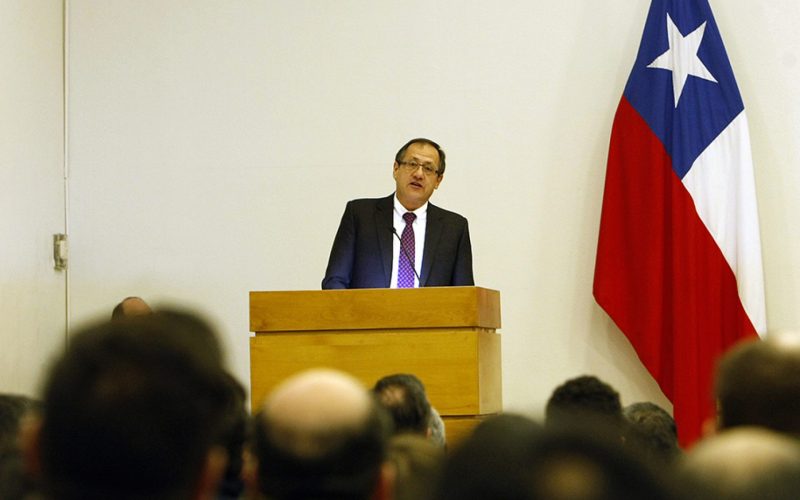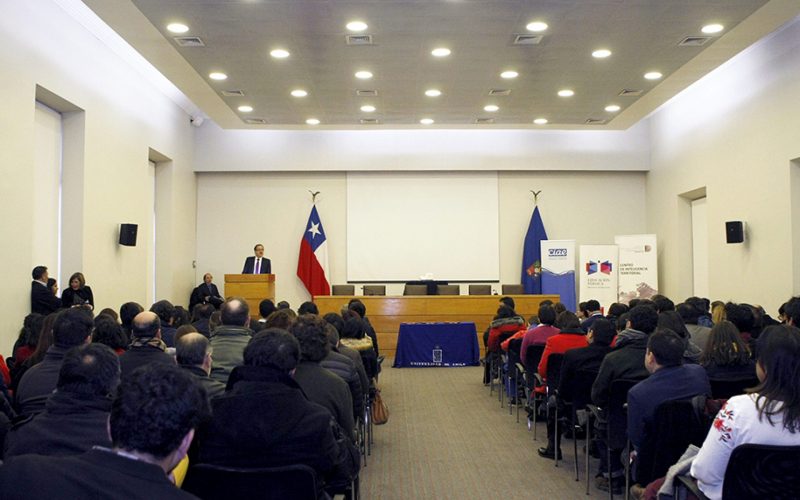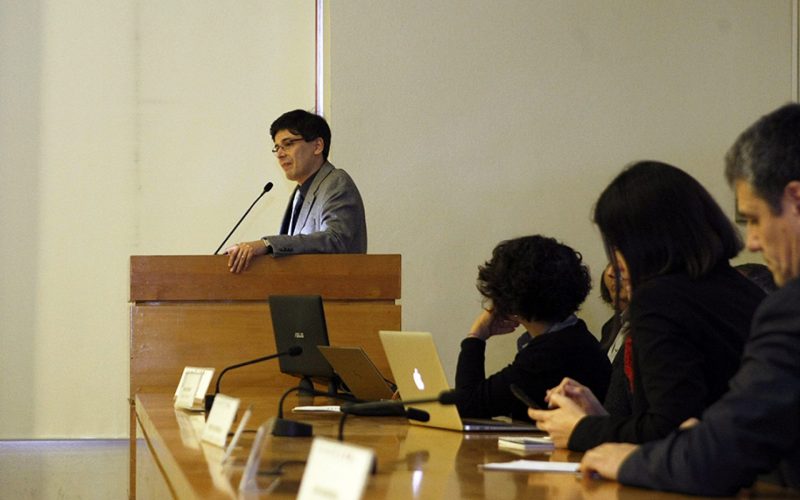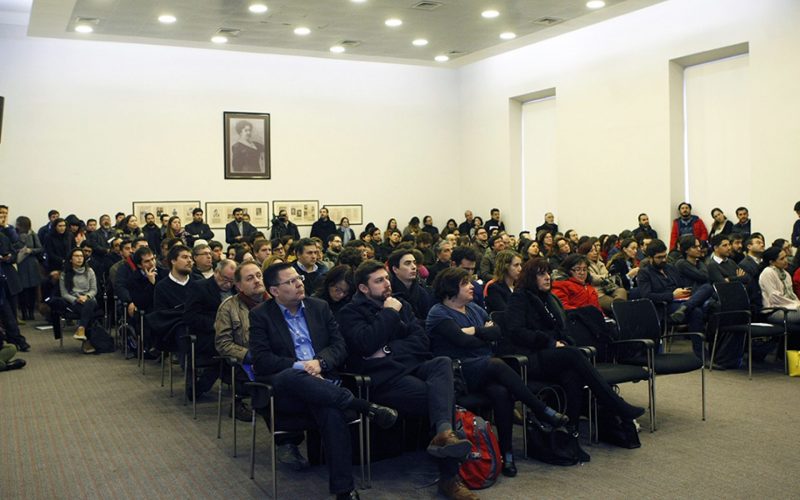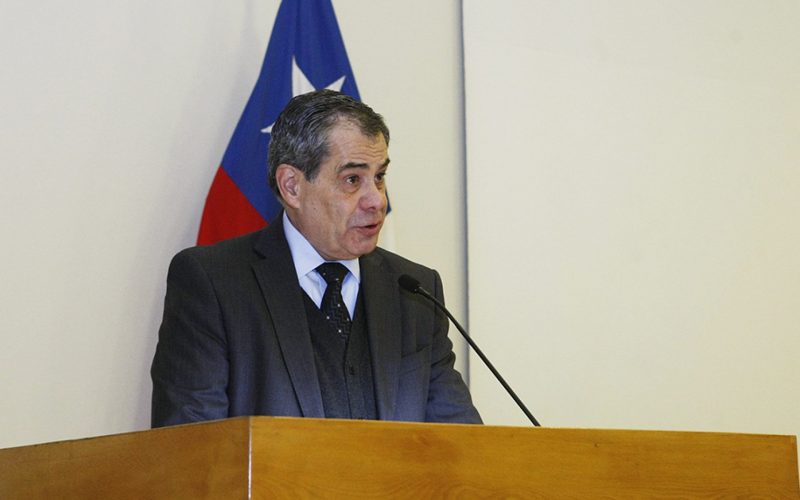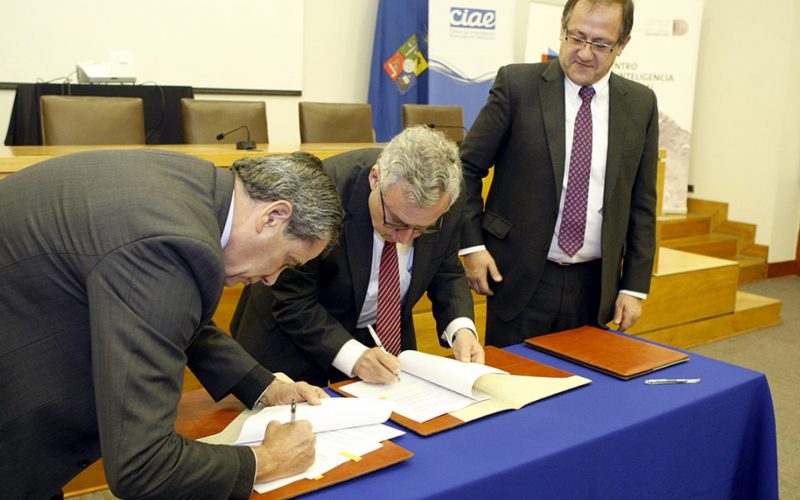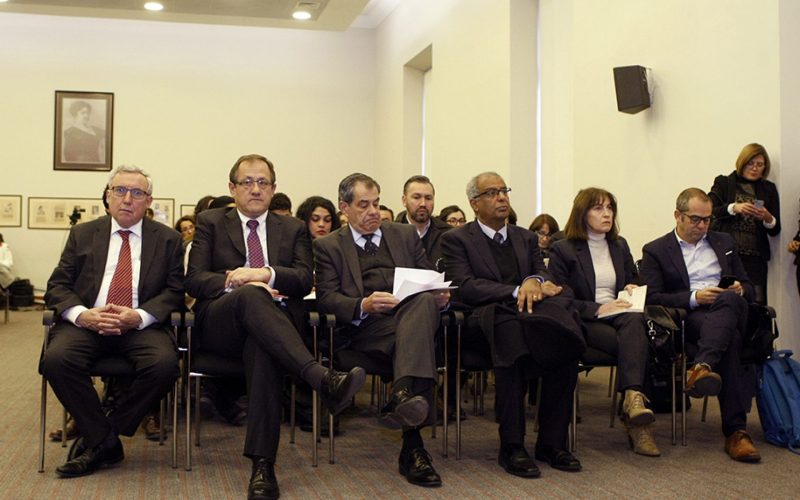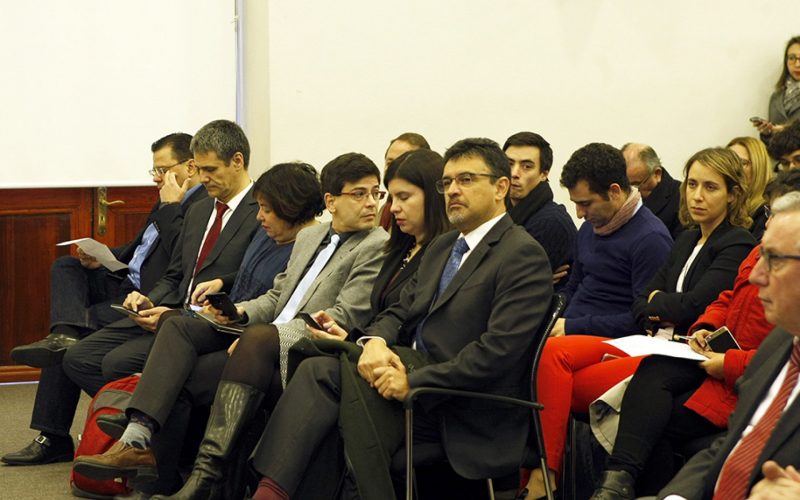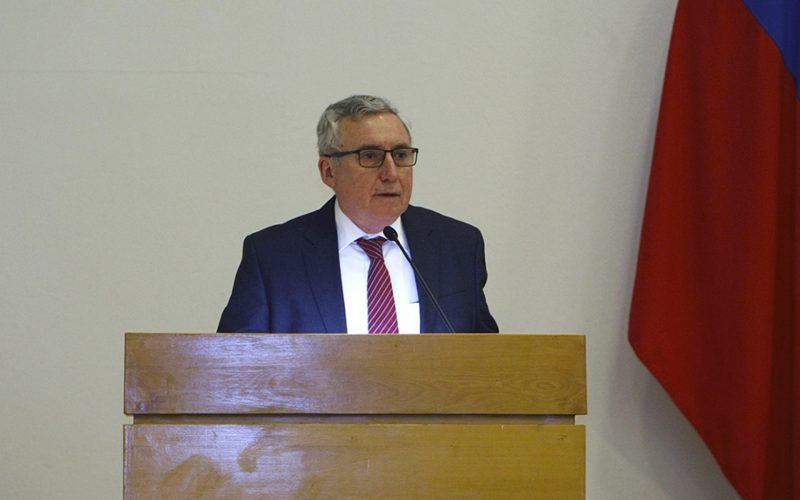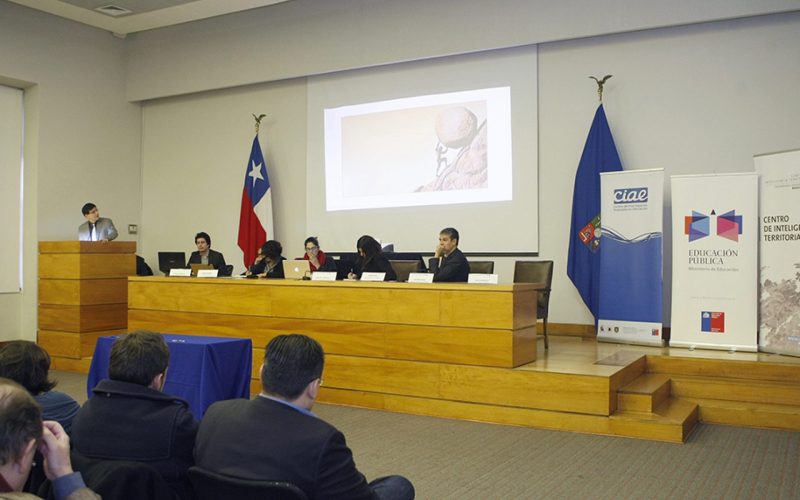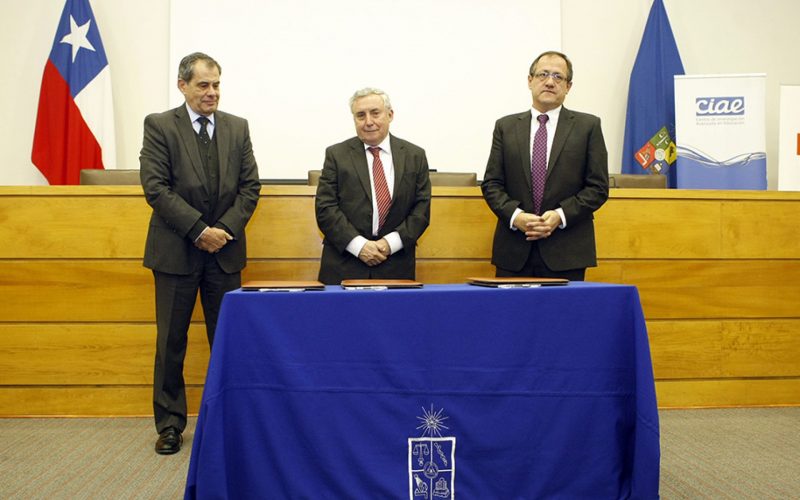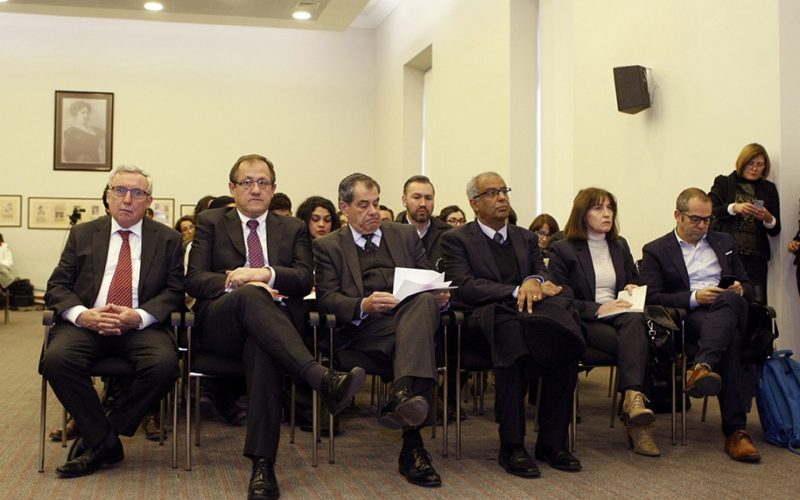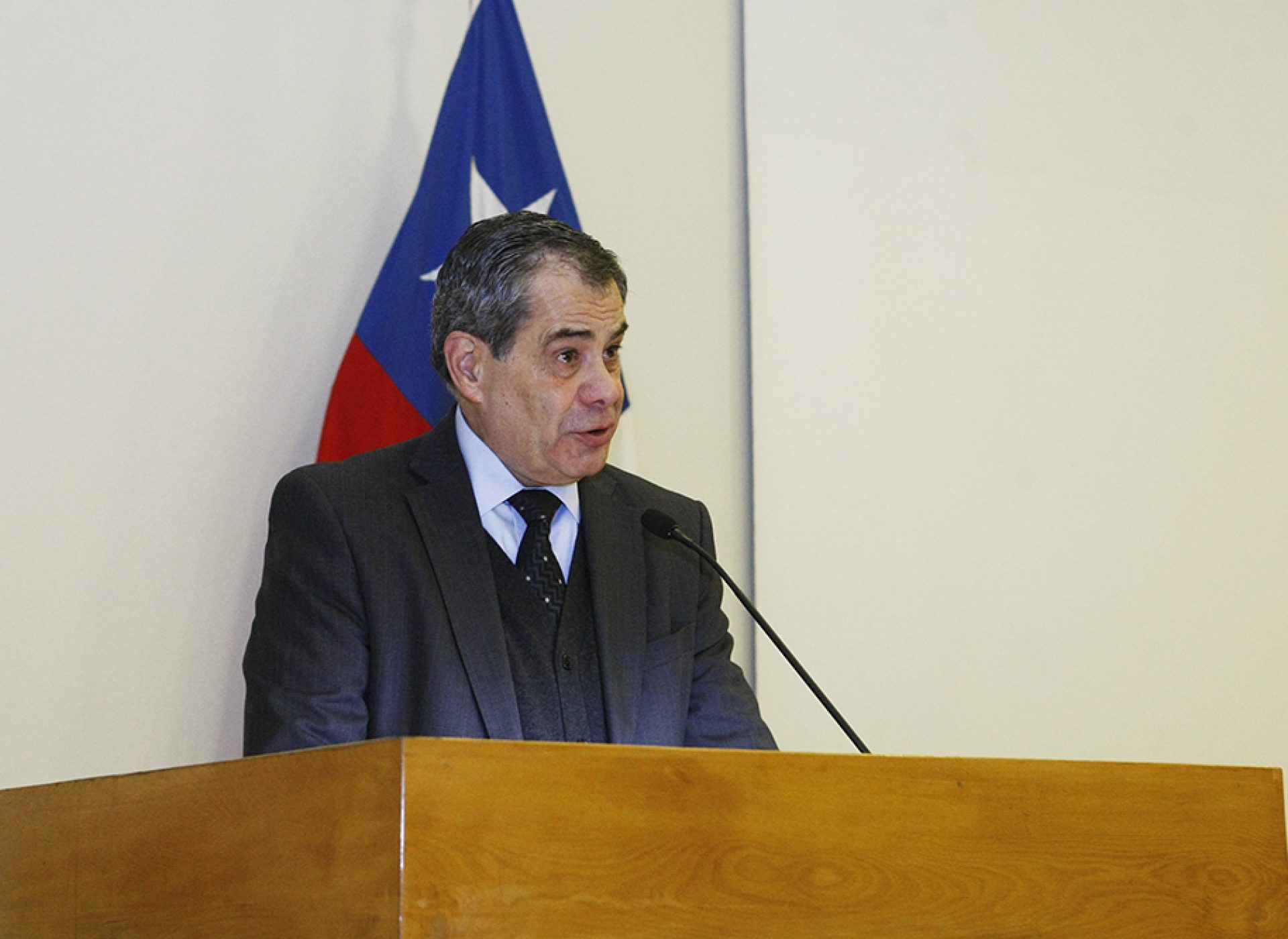
Displacement of schoolchildren between communes, coverage of public school offer for each block, number of students who drop out of the system, educational paths, sociodemographic composition in each establishment, are some of the indicators provided by the platform “Information system, monitoring and evaluation of public education”.
UAI together with U. de Chile launch big data platform for public policy formulation
June 6, 2018
*Gallery: Centers delivered an information, monitoring and evaluation system to the Directorate of Public Education.
Displacement of schoolchildren between communes, coverage of public school offer for each block, number of students who drop out of the system, educational paths, sociodemographic composition in each establishment, are some of the indicators provided by the platform “Information system, monitoring and evaluation of public education”, created by the UAI Territorial Intelligence Center (CIT) in conjunction with the Center for Advanced Research in Education U of Chile (CIAE) that was presented on Tuesday, June 5 at a seminar at the Central House of the University From Chile.
In the activity, the rectors of the universities of Chile and Adolfo Ibáñez, Ennio Vivaldi and Harald Beyer, signed an agreement to transfer said platform to the National Directorate of Public Education, represented by the national director, Rodrigo Egaña.
“This effort accounts for the concern for public education. It is a first level landing to see what is the reality in which schoolchildren develop, ”rector Vivaldi said at the ceremony. In addition, he recalled that with this platform it is possible to make visible the concept of equal opportunities: “if the State recognizes its commitment to the population as a whole and cannot ignore it, it is its duty to seek first-level public education”.
For his part, the rector of the Adolfo Ibáñez University, Harald Beyer, highlighted the value of the data analytics platform in education, as well as the collaboration between universities that, after six years of joint work, allowed to develop it. “This project takes the academy to the ordinary citizen. Universities can’t live in ivory towers, they must transfer knowledge to society,” said Beyer.
Along the same lines, the director of Public Education, Rodrigo Egaña said that the tool will allow a diagnosis of territorial inequality, informing about accessibility to public services or the socio-environmental capital of a given territory, which is “a central importance for the new Public Education System ”.
“Regardless of the political situation and the management of a government, the quality of public education demands a height of sight and greatness of spirit; Once the consensuses we have reached have been reached, the time has come to work together in pursuit of the same objective, which is none other than to improve the opportunity of each student and thus contribute to the development of their personal trajectories and contribute to the development of the country,” said Egaña.
The platform
The platform was developed by teams from the Center for Advanced Research in Education of the University of Chile and by the UAI Territorial Intelligence Center, with the support of FONDEF. With the use of advanced techniques such as big data, analytical visualization and machine learning, it is able to deliver information and evidence to answer the strategic questions that guide public policies in education, in order to provide support for the correct decision making in this area
“Usually, public policy decisions in education are made blindfolded,” said Patricio Rodriguez, CIAE researcher and project director.
Luis Valenzuela, director of the CIT and also project director, added that “using the territory to design our public policy and having an impact on the country is one of the missions of the universities.”
The seminar closed with a panel composed by authorities and experts, such as Paulina Araneda, President of the Council and Counselor of the Agency for the Quality of Education; María Paz Hermosilla, academic of the UAI School of Government and Director of the GobLab UAI; Alejandra Rasse, Academician of the Catholic University and Researcher of CEDEUS (Socio-Space Dynamics); and Rodrigo Roco, head of the Educational Development and Planning Division of the Public Education Office.
Present at the activity, by the University of Chile, Flavio Salazar, Vice Chancellor for Research; Silvia Núñez, Director of Research; and Alejandra Mizala, director of the Institute for Advanced Studies in Education. On behalf of Conicyt, FONDEF director Khaled Awad was present; and by the Education Quality Agency, its President of the Council and Counselor, Paulina Araneda. On behalf of the UAI, there was Luis Valenzuela, director of the Center for Territorial Intelligence and María Paz Hermosilla, director of GobLab UAI.

